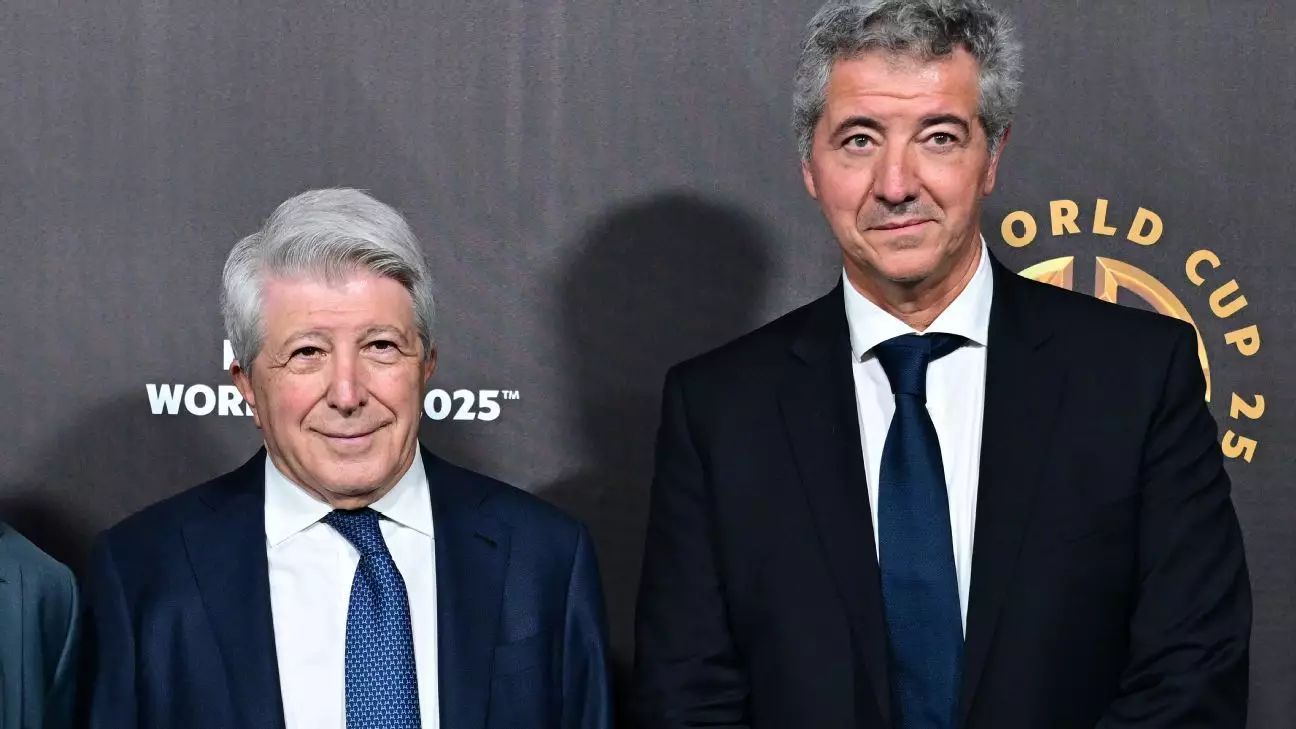The footballing world has been rife with discord since the announcement of the Super League project, which has proven to be a contentious topic for players, clubs, and governing bodies alike. Miguel Ángel Gil Marin, CEO of Atlético Madrid, has been vocal about his dismay regarding recent developments surrounding this initiative, particularly the recent rebranding of the Super League as the “Unify League.” His remarks not only highlight the deep divisions this project has wrought but also underscore Atlético’s position as a club that prioritizes the integrity of the sport over self-serving ambitions.
Gil Marin’s criticisms resonate with many in the football community who feel that the Super League, once presented as a potential solution to inequality in football, has devolved into a mechanism for a select few clubs to consolidate their power. His assertion that the current proposals seem primarily concerned with “vindication for one club” reveals a broader concern about how these endeavors threaten the competitive balance that underpins European football. In a sport characterized by its unpredictability and competitive spirit, moves that prioritize the interests of a few over the many can significantly undermine the emotional and economic investments of fans and smaller clubs alike.
At the heart of Gil Marin’s argument is the assertion that the Super League—and by extension the Unify League—creates “uncertainty” for stakeholders throughout the football ecosystem. This uncertainty can manifest in various ways, but it primarily affects television rights and sponsorship deals, which are essential revenue sources for clubs at all levels. The success of these agreements often hinges on the stability and structure of competitions, which are destabilized by the prospect of a closed league system that is insulated from traditional promotion and relegation systems.
Conversely, UEFA and the European Club Association have made strides to adapt their competitions, intending to include a wider range of clubs while ensuring that major clubs can also reap financial benefits. The introduction of multiple European competitions such as the Champions League, Europa League, and Conference League has addressed some of the concerns that the original Super League was purported to tackle. Gil Marin’s focus on inclusivity and financial sustainability exemplifies a commitment to the sport’s broader values, contrasting sharply with the exclusivist ethos of the Super League.
Health Considerations for Players
Another critical aspect addressed by Gil Marin concerns player welfare. With the increase in match congestion due to international commitments and club tournaments, he calls for regulations to limit the number of games players can participate in. This sentiment echoes a growing consensus among players, coaches, and fans alike that the wellbeing of athletes should take precedence over the relentless demand for high-stakes matches.
By advocating for player protections, Gil Marin positions Atlético Madrid not only as a club aiming for sporting success but also as one that genuinely cares for the individuals who drive that success. A delicate balance must be achieved, allowing top players to participate in significant matches without overwhelming them, thereby ensuring both their longevity in the sport and the overall health of the game.
As Atlético Madrid Basks at the top of the LaLiga table, bolstered by significant investments in player acquisitions, the club’s trajectory appears promising. The leadership has recognized the need to evolve the squad to remain competitive, and the decision to invest in quality players such as Julián Álvarez and Alexander Sørloth reflects a robust strategy aimed at maintaining their standing in a fiercely competitive environment.
Gil Marin’s approach emphasizes a coherent vision for Atlético Madrid—one that seeks not only immediate success on the pitch but also strives to engage in meaningful dialogue about the direction of football as a whole. By balancing ambition with the ethical considerations of player welfare and competitive fairness, Atlético Madrid continues to position itself as a leader in reforming, rather than undermining, the cherished values of football.
Gil Marin’s remarks about the Super League symbolize a pivotal moment in European football, an opportunity to reassess the sport’s priorities. The focus should shift from the narrow ambitions of a select few to a more inclusive future where the foundations of football are preserved and enhanced for all.

